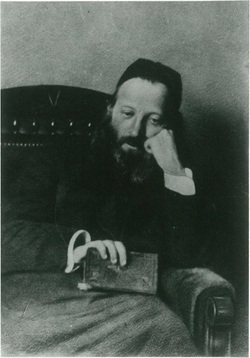- Home
- Teachings (1)
- Teachings (2)
- Teachings (3)
-
Rav Kook's Journals
- From My Inner Chambers
- Thirst for the Living God
- The Pangs of the Soul
- Yearning to Speak a Word
- Singer of the Song of Infinity
- Wellspring of Holiness
- I Take Heed
- To Know Each of Your Secrets
- Great is My Desire
- To Serve God
- To Return to God
- Land of Israel
- My Love is Great
- Listen to Me, My People
- Birth Pangs of Redemption
- New Translations
- Lights of Teshuvah
- About the Translator
- Contact Me
Fear of God

Skating
The fear of God is the deepest wisdom, based upon the most profound view of the world. [The fear of God] provides a deep foundation to every field of knowledge and every teaching, whether holy or secular.
The secular itself must, when it seeks the fundamental depth, come to this conclusion: as long as the fear of God does not provide the basis of the field of knowledge, it is merely skating upon the outer surface of concepts—which are in truth not wisdom at all.
Musar Avichah, Yirah I
The Essence of Not Knowing
Within the depth of our soul, we can envision the source of the awe of God, because of the wondrous blend of two opposites pertaining to divine providence: a lack of complete knowledge regarding the character of the Divine, and an assured knowledge of that perfect Being.
The wondrous mixture of these two magnificent opposites is exceedingly awesome. [This mixture is exemplified by Yaacov Avinu.] Yaacov said of [the site of the future Temple], “How awesome is this place.” Thus, he is known as the awesome one (Baal Haturim, Devorim 7:21). Yaacov is [also] known as “a simple man who dwells in tents.” Which tents? The tents of Avraham and Yitzchak, which combine in the [tent of Yaacov, who is also known as] “the beauty of Israel.” And “the beauty of wisdom is awe” (Deretz Eretz Zuta).
It is necessary that there be a lack of knowledge. Due to the obscurity within human awareness, our knowledge obscures the known even as it clarifies it. This also applies to any domain of knowledge dealing with all of limited, created existence.
The essence of life is the relationship of the Divine with existence.
This [relationship] is enclosed within a hidden knowledge that can only be comprehended by the most hidden will of the heart. By no means can definite knowledge give it form. The definition itself would obscure it—and that would dissolve the knot of being.
It is impossible for us to grasp the Divine Being, so that we not be nullified.
The purpose of knowledge is to draw down life, a state of being that is not separated by any curtain or interposition from the source of the Life of lives and the Being of being.
Yet that is something that we cannot know.
In other words: the inability to know is not an idea. Rather, it is the essence of not knowing.
In its supernal darkness, the essence of true knowledge rests without even the touch of a limited hand, which would diminish its image.
“Do I not fill the heavens and the earth? says the Lord” (Jer. 23:24).
Musar Avichah, Yirah 2
The Light of Life
Exacting care in our actions inspired by the lower wellspring—the fear of punishment—may contain small-mindedness and judgements.
Ultimately, this will rise. Ultimately, all its strictness will become a flame of holy might: with love and a fire that blazes with the pleasantness of divine friendship; with love of humanity; with grace and good wisdom.
Ultimately, this exacting attitude will arrive at the supernal wellspring of the light of life. There, the illumination of holy pleasures shines the might of its radiance upon life.
“God, how precious Your kindness is!
In the shadow of Your wing,
People find sanctuary.
They are gratified by the wealth of Your home.
You give them to drink from Your river of delight.
The wellspring of life is with You.
And so, in Your light, we will see light.
Extend Your kindness to those who know You,
And Your justice to those who are honest” (Psalms 36:8‑10).
Orot Hakodesh IV, p. 419
The Fear of God
In every clash, whether physical or spiritual, we experience light and its vessel: the soul and body. In accordance with the clarity of our understanding and the purity of our will, so does light shine upon us from the vessel. Our soul shines from our body.
When our thoughts tumble over one another, there is one universal treasury: the fear of God, the fear of punishment and an ordinary trepidation.
This constitutes the floor of that tabernacle of faith that stretches out to rectify the world.
Then, in accordance with the clarity of our understanding and the holiness of our acts and our spirit, our soul is revealed.
Our soul had been steeped in the midst of that corporeal and crude fear.
Now our soul is revealed: our soul, which is the crown of all spiritual ideals, of the glory of honor and of the awe of God’s greatness. It is the stronghold of love. It is the source of the streams of all idealistic yearnings, mighty in their desire, which rise higher and higher to the most elevated worlds.
Orot Hakodesh IV, p. 420